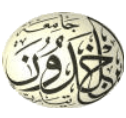University of Tiaret is Ibn Khaldun Tiaret University. Here is a detailed introduction to the school:
Introduction and Overview
Basic Information: Located in Tiaret, Algeria, it is a comprehensive university with Arabic and French as official languages. The official website is https://www.univ-tiaret.dz/.
Student Size: In the 2021-2022 academic year, the number of students exceeded 33,000, of which about 166 were foreign students, accounting for 0.54% of the total number of students.
History and Establishment Time
Establishment Process: The university's higher education began in the 1980-1981 academic year, with the creation of a university center in accordance with Decree No. 80-163 of May 31, 1980, with an initial enrollment of 190 students. In the 1984-1985 academic year, the university center was replaced by two national higher education colleges, the National Agricultural College and the National Civil Engineering College. In 1992, the University Center was reopened, and the two colleges were managed by an independent central administration in terms of teaching, administration and finance. In 2001, the University Center was transformed into a university by Executive Decree No. 01-271. Further adjustments and developments were made in 2010 and 2013, forming the current Ibn Khaldun Tiaret University.
Nature of the institution
Public university: As a public university, it has received strong support and funding from the Algerian government and plays an important role in teaching, scientific research and social services.
Strength of running a school
Faculty: With 1,071 teachers and 1,099 administrative and support staff, the teachers have rich teaching and scientific research experience in their respective professional fields and can provide students with high-quality education and guidance.
Degree courses: It offers multiple degree courses from undergraduate to doctoral level, covering multiple disciplines such as humanities and social sciences, engineering sciences, agronomy and veterinary medicine, natural sciences and life sciences, economics, business and management sciences, law and political sciences, etc., to meet the learning needs of different students.
Educational philosophy
Focus on all-round development: Emphasis on cultivating students' comprehensive qualities, not only focusing on the imparting of professional knowledge, but also focusing on cultivating students' innovation ability, practical ability, teamwork spirit and social responsibility, so that students can develop comprehensively and adapt to the needs of society.
Encourage academic research: Actively create a strong academic atmosphere, encourage teachers and students to carry out academic research activities, improve the overall scientific research level and academic influence of the school, and cultivate students' scientific research ability and innovative thinking.
Key laboratories and disciplines
Key disciplines: Arabic language and literature, law, economics, biology, computer science and other disciplines have certain advantages and characteristics in teaching and scientific research, and are at a relatively high level in Algeria.
Key laboratories: There are 13 scientific laboratories, covering physical engineering, agricultural biotechnology and nutrition in the Arabian Peninsula, synthesis and catalysis, industrial technology, environmental protection legislation, information technology and mathematics, agricultural animal breeding and other fields.
Faculty
School of Law and Political Science: Provides teaching and research in law, political science and other majors, and cultivates professional talents in the fields of law and politics.
School of Languages and Literature: There are Arabic, English, French and other language and literature majors, focusing on the cultivation of language skills and the improvement of literary literacy.
School of Natural and Life Sciences: covers biology, ecology, environmental science, biotechnology and other disciplines, and is committed to teaching and research in the fields of natural sciences and life sciences.
School of Economics, Trade and Management: offers majors such as economics, business science, and management science to cultivate economic management talents.
School of Humanities and Social Sciences: includes majors such as sociology, psychology, history, and philosophy, focusing on research and talent training in the fields of humanities and social sciences.
School of Materials Technology: focuses on teaching and scientific research in the fields of materials science, chemical engineering, and physical engineering.
Institute of Veterinary Science: conducts research and talent training in animal health, animal husbandry, and veterinary science.
Ranking
International ranking: In the 2023 uniRank ranking, the school ranked 6793 in the world, 609 in Africa, and 24 in Algeria. In the July 2025 Webometrics ranking, the school ranked 3593 in the world and 135 in the Arab world.
Fees
Tuition fees: For Algerian students, tuition fees are relatively low and are usually subsidized to a certain extent by the government. The tuition fees for international students are relatively high, but the specific fees vary depending on the major and degree level.
Living expenses: The cost of living in Tiaret is relatively low. The monthly living expenses of students include accommodation, food, transportation, etc. The specific expenses vary from person to person and depend on personal lifestyle and consumption habits.
Campus environment
Teaching facilities: It has modern teaching buildings, libraries, laboratories, gymnasiums and other teaching and living facilities. The library has a rich collection of books, covering books, journals and electronic resources in various disciplines, providing sufficient material support for students' learning and research. The laboratory is equipped with advanced instruments and equipment, providing good conditions for students to conduct experimental courses and scientific research projects.
Cultural atmosphere: Focus on campus cultural construction, organize and carry out colorful campus cultural activities, such as academic lectures, cultural festivals, sports competitions, art exhibitions, etc. These activities not only enrich students' extracurricular life, but also promote exchanges and integration between students from different cultural backgrounds, creating a positive, diverse and inclusive campus cultural atmosphere.
Natural environment: The campus environment is beautiful and well-greened, providing students with a comfortable learning and living space. There are gardens, lawns, trees, etc. on campus, allowing students to enjoy the beauty of nature after studying.
-
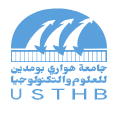
University of Sciences and Technology Houari Boumediene
-
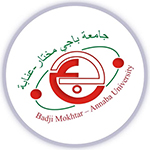
Badji Mokhtar University of Annaba
-
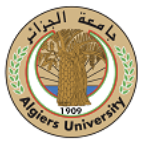
University of Algiers 1
-
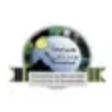
University of Boumerdés
-
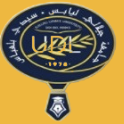
University of Sidi-Bel-Abbès
-
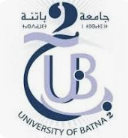
University of Batna 2
-
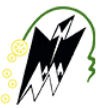
Univerisity of Tizi-Ouzou
-
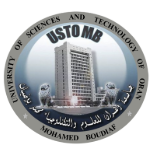
University of Science and Technology of Oran
-
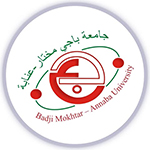
University of Annaba
-
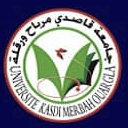
University of Ouargla
-

Mesoamerican University
-

Istmo University
-

Mariano Galvez University of Guatemala
-

Regional University of Guatemala
-

Galileo University
-

Francisco Marroquín University
-

Rafael Landívar University
-

University of the Valley of Guatemala
-

University of San Carlos of Guatemala
-

Technological Institute of Tlaxcala Plateau
-

Golfo University
-

Technological University of South Sonora
-

Technological University of Huejotzingo
-

Tizimín Institute of Technology
-

Chilpancingo Institute of Technology

